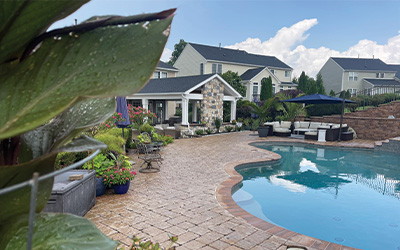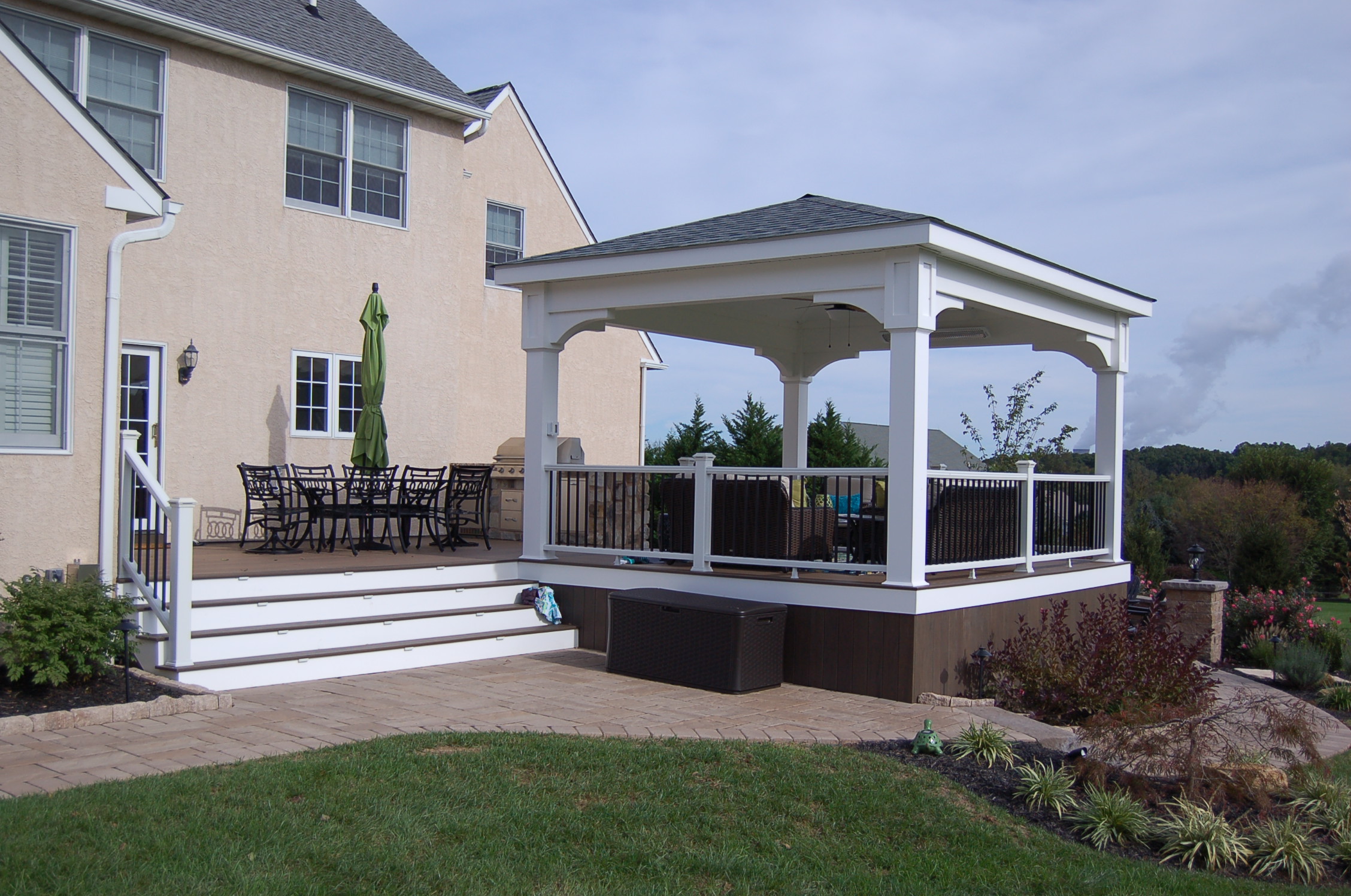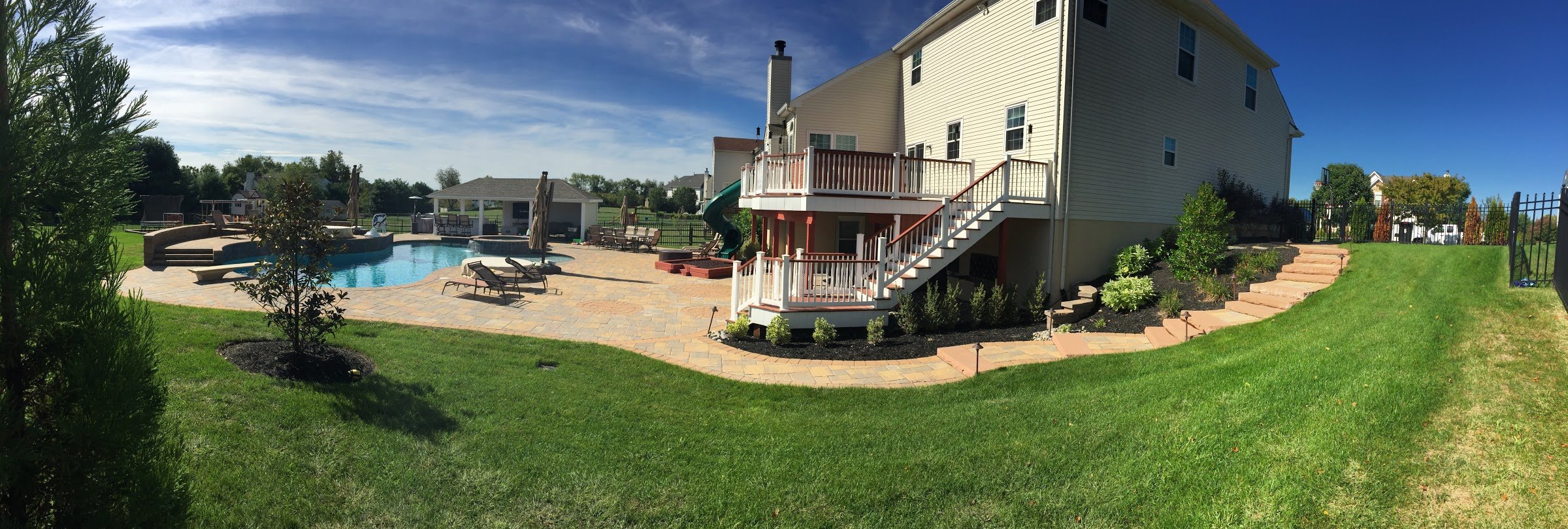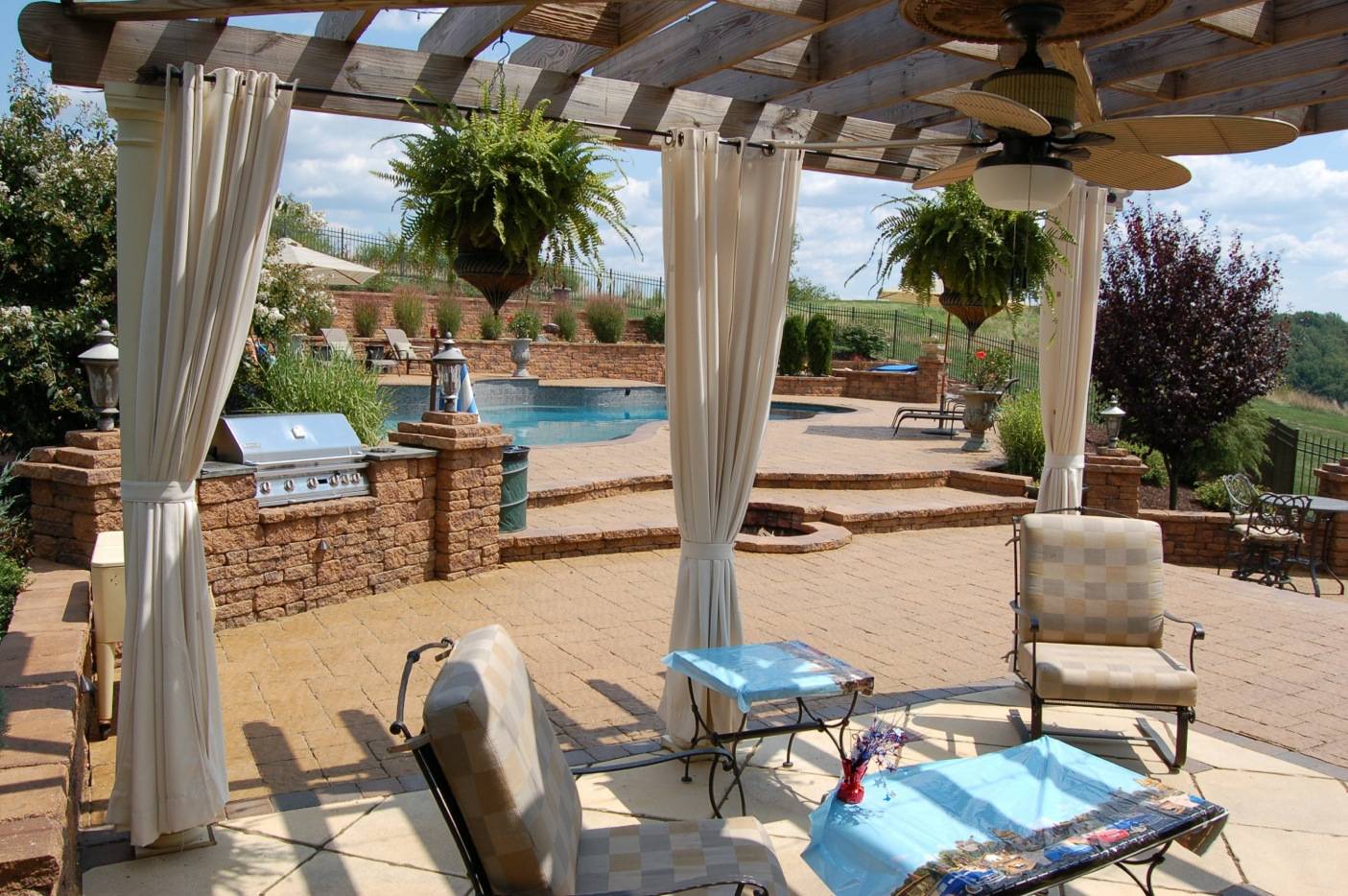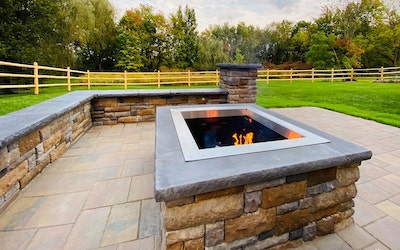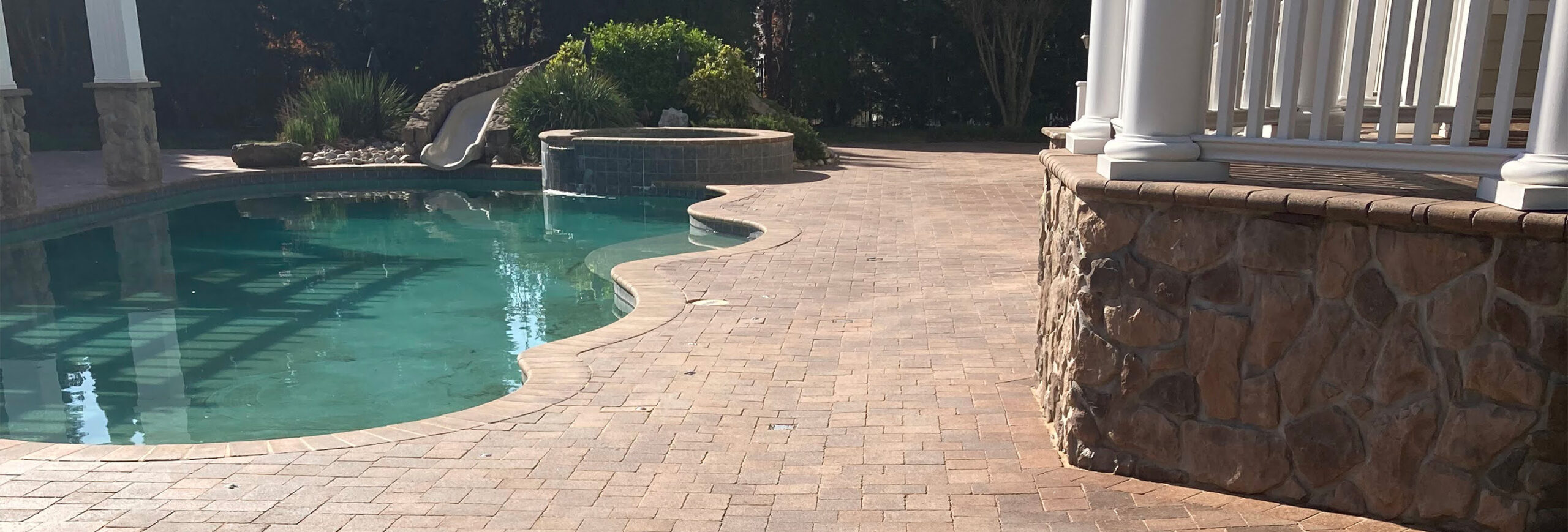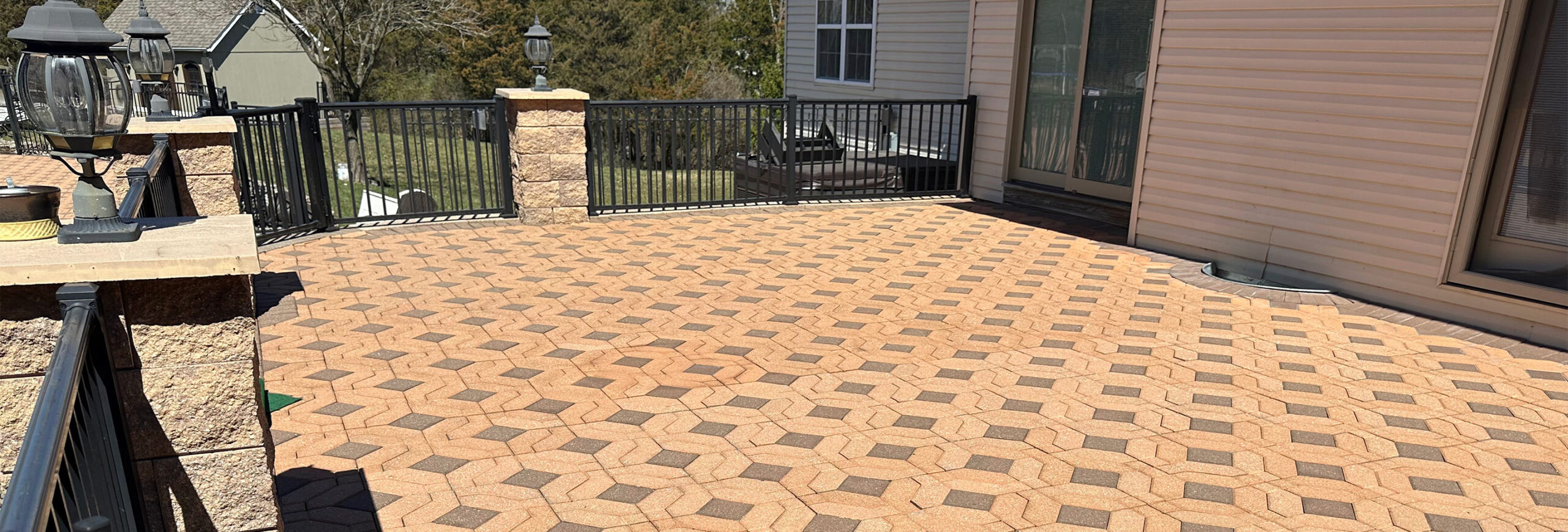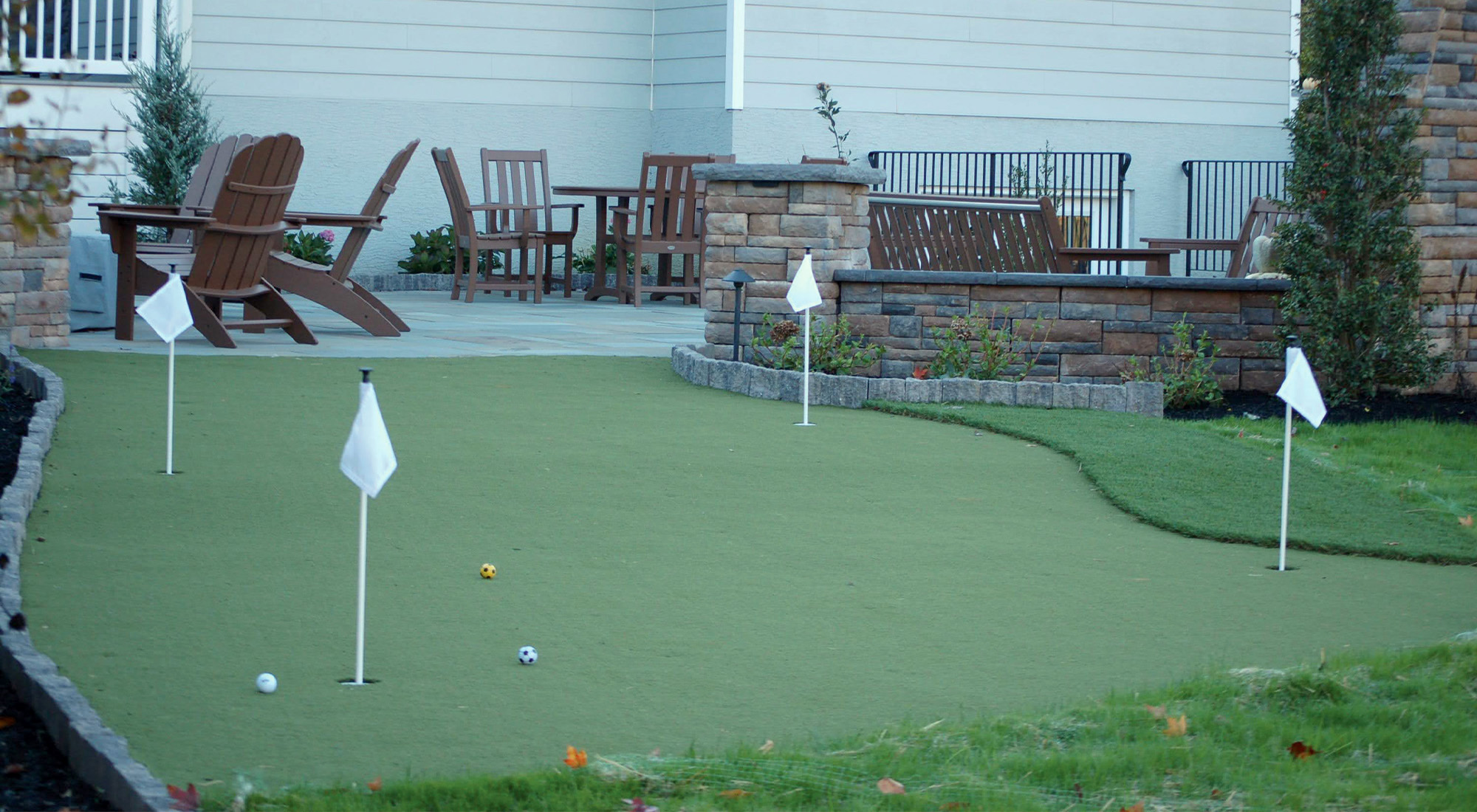Ask the Experts: Your Ultimate Paver FAQ Guide
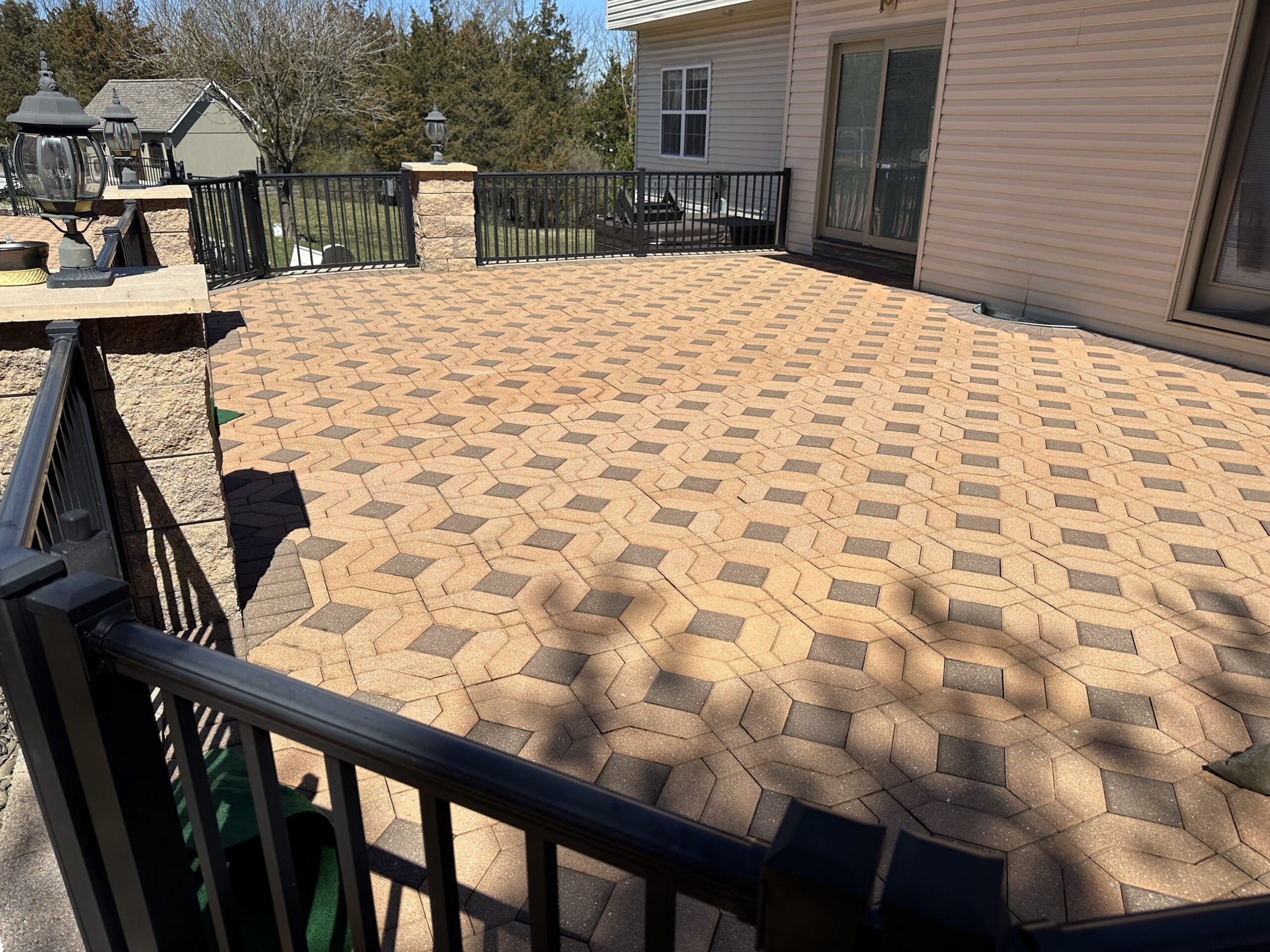
March 20, 2024
Choosing the right pavers for your project is crucial. At CKC Landscaping, we’re here to guide you through understanding pavers completely. Concrete pavers, celebrated for their long history and versatility, enable the creation of extraordinary designs. Today’s technology allows precision interlocking paving stones in various styles, patterns and colors. When correctly installed, pavers for driveways, walkways, patios and pool decks are durable, resisting cracking, sagging, shifting, or separation. Despite misconceptions about cost, pavers are an affordable luxury that significantly enhances beauty, elegance and durability.
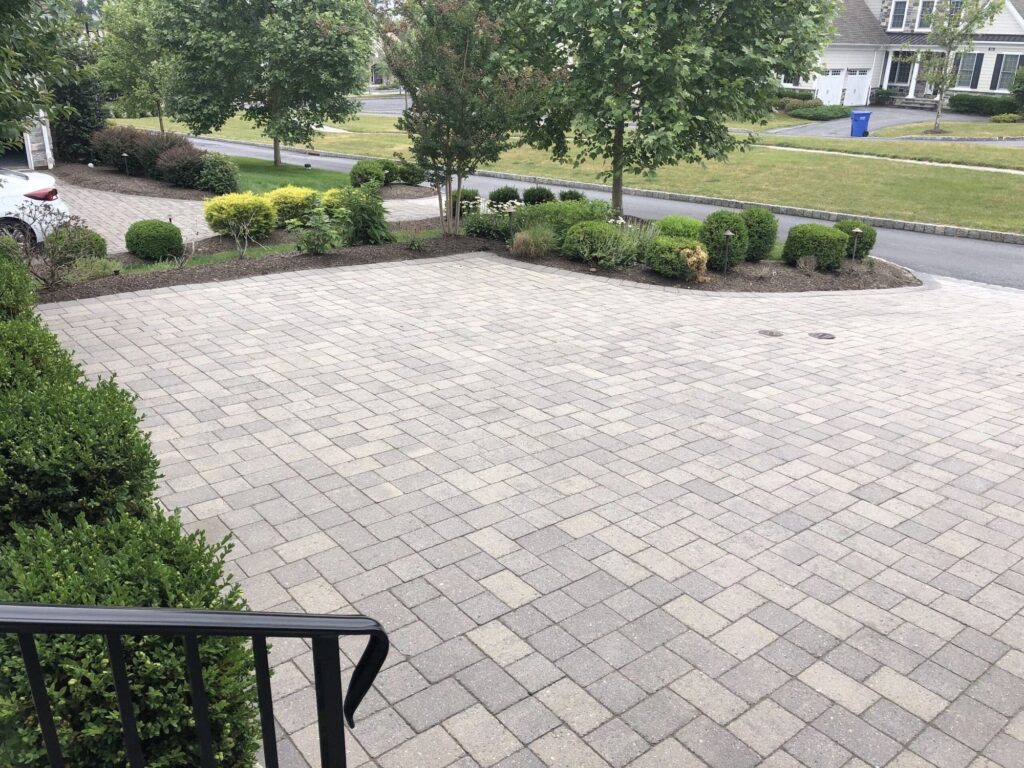
What Are Pavers?
Made of brick, clay, or concrete, pavers form durable, smooth surfaces outdoors. They’re perfect for patios, outdoor steps, pathways, driveways and retaining walls for residential projects. Commercial applications include medians and crosswalks. Permeable pavers, essential for both settings, help manage water runoff.
Are Pavers Right for My Home?
Absolutely! Pavers offer versatility in design for driveways, walkways, patios, pool decks and more. Select from a myriad of colors and textures to complement your home’s aesthetic.
What Are the Most Common Shapes of Pavers?
Pavers are a varied landscape element in shape, but some of the most common ones are standard square and rectangular pavers. Manufacturers such as EP Henry, Techo Bloc, Belgard and CST offer several paver shapes you can use to form your patterns, including circle kits, octagon kits and diamond kits.
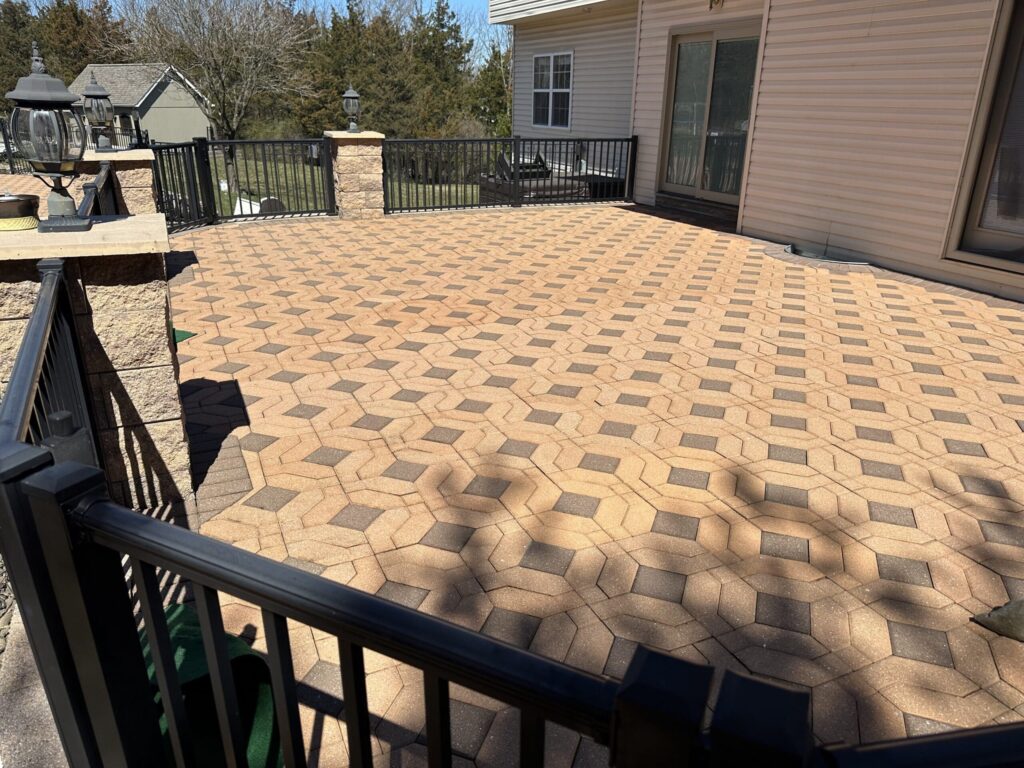
What Are Some Typical Dimensions for Pavers?
For square and rectangular pavers we offer, typical sizes include 8” x 8”, 12”x 12” and 24” x 24”. These are nominal thicknesses due to the random surface textures of each paver.
Why Should I Consider Natural Stone?
Natural stone offers unique beauty and permanence that brick pavers might not, making it an excellent choice for enduring landscape projects.
What Are the Advantages of Pavers?
Due to their production process, pavers boast superior strength (minimum 8000 psi) and durability, especially in freeze/thaw environments. Unlike concrete or asphalt, pavers provide a flexible, crack-resistant surface that is easily repaired if necessary.

What Is the Cost of Installing Pavers?
Paver installations are surprisingly affordable, influenced by factors like product choice, project size, design complexity and location. For a detailed estimate, fill out our contact form.
Will the Pavers Mildew?
Pavers resist mildew better than other surfaces, thanks to less water retention. Our paver restoration program can rejuvenate your installation. Proper use of polymeric sand nearly eliminates weed and grass growth, a significant advancement in paver maintenance.
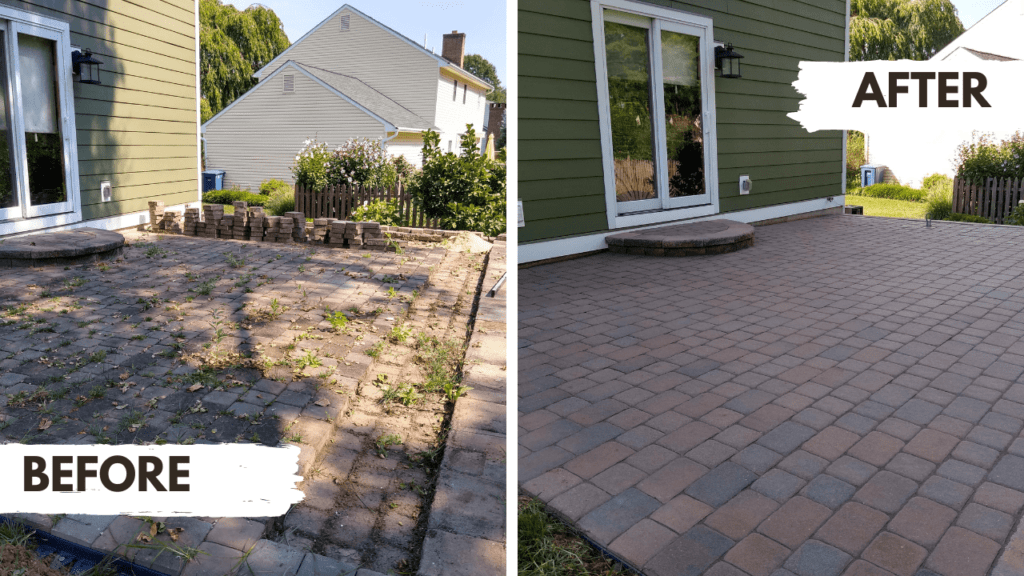
How Do I Control Weeds and Grass from Coming Up in My Paver Patio or Walkway?
With the proper use of polymeric sand, this issue has faded away with pavers. Polymeric sand, widely used for around 10-12 years, has significantly reduced organic growth in patios and walkways.
Can I Replace a Paver if it is Broken or Stained?
Yes, you can easily replace your pavers by keeping extras from the initial installation. When replacing a paver, scrape out the sand in the joints surrounding the paver that need to be removed. Use two screwdrivers (or a paver puller) to wiggle the paver out.
Do Pavers Need to Be Sealed?
Sealing your pavers is not mandatory, but we recommend it. Sealing your pavers will help prevent fading and staining and help your pavers truly last a lifetime. Check out CKC Landscaping’s paver restoration program.
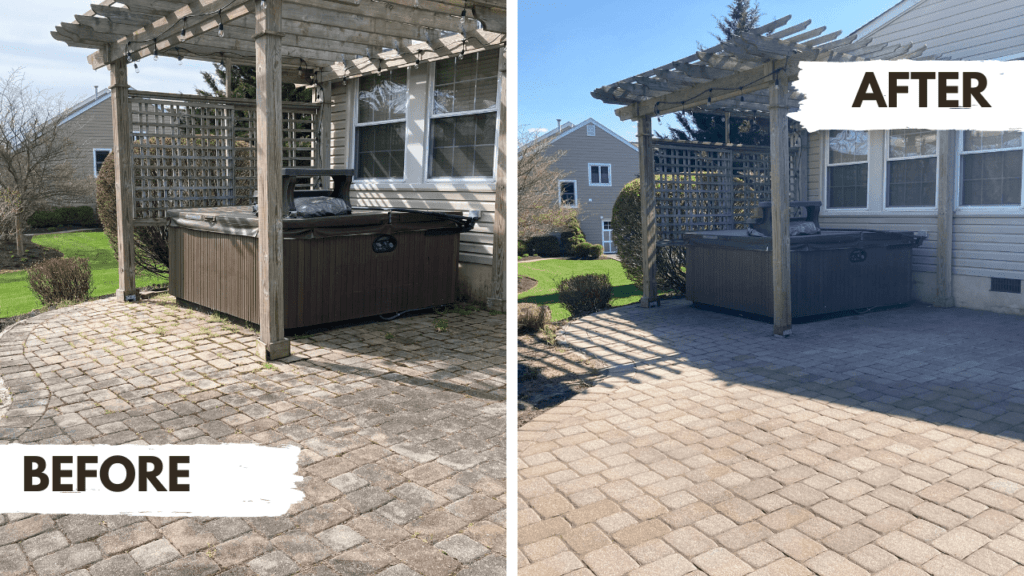
What Are Some of the Benefits of Installing Interlocking Pavers?
Some benefits include added beauty and elegance, property value increase, custom designs that will complement your home, numerous colors and patterns to choose from, the swift and efficient installation process, a lifetime product guarantee and the satisfaction that comes with knowing your product won’t crack or break.
Are There Different Prices Between Different Types of Pavers?
Yes, the prices vary depending on the type of paver. Contact us to learn more about the costs and different paver types.
How Long Do Pavers Last?
Pavers are known for their durability and lifespan. With proper care and maintenance, high-quality pavers can last several decades, often 30 to 40 years or even longer. The lifespan of pavers largely depends on the quality of the material, the installation process and the maintenance routine.
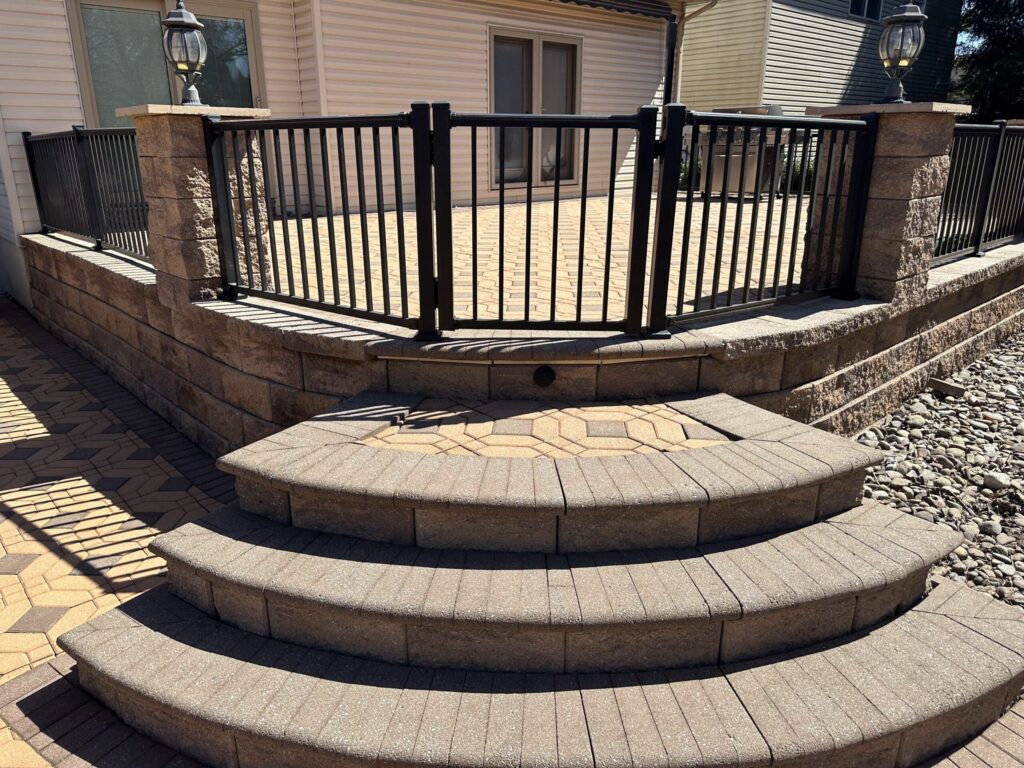
Can Pavers Increase Home Value?
Investing in pavers can significantly boost the visual appeal of your home, potentially enhancing its market value. The right pavers create a welcoming first impression, appealing to potential buyers. Real estate experts suggest that well-executed patio additions can lead to a noticeable return on investment (ROI). Additionally, a thoughtfully designed patio may substantially increase a home’s overall value, particularly when it comes to the repair and upkeep of existing paver patios.
Ready to Transform Your Outdoor Space?
CKC Landscaping is dedicated to bringing your vision to life with quality pavers that offer durability, style and value. Whether it’s a serene walkway, a welcoming driveway, or a luxurious patio, we have the expertise and materials to exceed your expectations. Don’t wait to enhance your outdoor living space. Contact us today for a consultation and let’s create something beautiful together!


